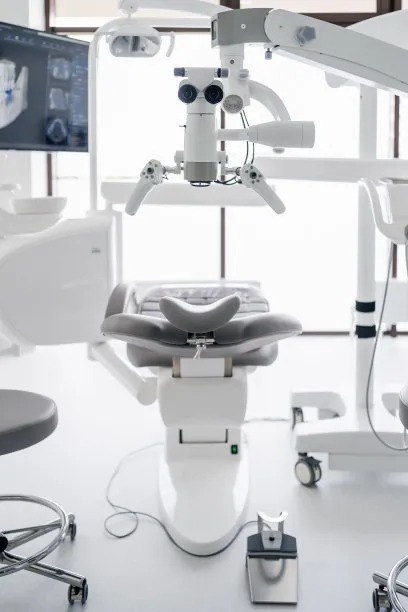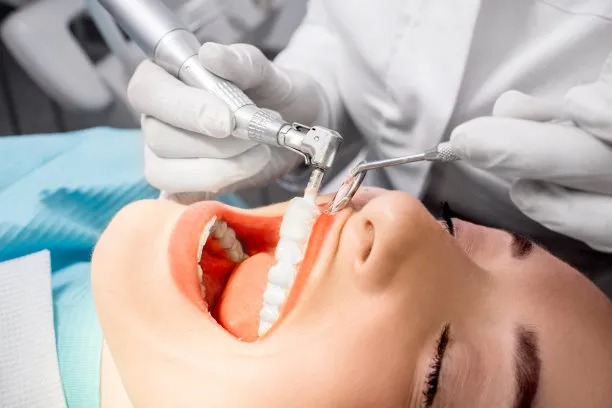Summary: Dental implants have emerged as one of the most significant advancements in modern dentistry, providing a longstanding solution for those with missing teeth. This article explores the benefits and innovations of dental implants, highlighting four key aspects: their role in restoring functionality and aesthetics, advancements in technology and materials, their positive impact on oral health, and their effect on quality of life. By understanding these elements, individuals can appreciate how dental implants contribute to lifelong oral health and an enhanced lifestyle.
1. Restoring Functionality and Aesthetics

Dental implants serve as a remarkable solution for individuals who have lost teeth due to injury, decay, or other dental issues. Unlike dentures or bridges, which can slip and require frequent adjustments, implants are securely anchored into the jawbone, replicating the function of natural teeth. This stability allows patients to eat, speak, and smile with confidence.
The aesthetic benefits of dental implants are equally significant. They are designed to match the color and shape of existing teeth, creating a seamless and natural appearance. This can greatly enhance self-esteem and encourage individuals to socialize without self-consciousness about their smile.
Moreover, dental implants do not require the alteration of adjacent teeth, which is often necessary with traditional bridgework. This preservation of nearby teeth contributes to overall dental health and ensures that the natural structure of the mouth remains intact.
2. Innovations in Technology and Materials
Recent advancements in dental technology and materials have revolutionized the field of dental implants. State-of-the-art imaging techniques, such as 3D cone beam computed tomography, allow dentists to pinpoint the optimal placement of implants with unparalleled precision. This not only improves the success rate of implant placement but also minimizes the need for invasive procedures.
In addition to imaging advancements, the materials used in dental implants have seen significant improvements. Modern implants are typically made of titanium, known for its biocompatibility and strength. Newer options, including zirconia implants, offer a metal-free alternative while providing excellent aesthetic results.
Furthermore, innovations like guided implant surgery and the use of computer-assisted design have streamlined the entire implant process. These innovations not only enhance accuracy but also reduce recovery time, allowing patients to return to their normal routines more quickly.
3. Positive Impact on Oral Health
One of the most critical benefits of dental implants is their positive effect on oral health. When a tooth is lost, the surrounding jawbone can begin to deteriorate due to lack of stimulation, leading to further tooth loss and even changes in facial structure. Dental implants help to preserve jawbone density by providing essential stimulation similar to that of a natural tooth root.
Additionally, implants prevent the shifting of adjacent teeth, which can lead to misalignment and further dental complications. By filling in the gaps left by missing teeth, they contribute to a balanced bite and help maintain overall dental alignment.
Furthermore, dental implants promote better oral hygiene. Unlike fixed bridges, implants can be cleaned just like natural teeth, allowing for easier brushing and flossing. This ease of maintenance can lead to improved oral hygiene practices, ultimately lowering the risk of gum disease and decay.
4. Enhancing Quality of Life
The impact of dental implants extends beyond just oral health; they significantly enhance overall quality of life. Patients with implants often report improved comfort while eating and speaking, leading to greater social engagement and less anxiety about eating in public.
Moreover, the psychological benefits of having a full set of teeth cannot be underestimated. Individuals with dental implants frequently experience improved self-image, which can boost confidence in both personal and professional settings. This boost in self-esteem translates into a more active lifestyle and better social interactions.
Finally, the durability of dental implants—often lasting 10 years or more with proper care—adds to their appeal. This longevity means that patients can enjoy their benefits without the stress of frequent replacements, allowing for a more carefree approach to life.
Summary:
In conclusion, dental implants are a transformative solution that addresses missing teeth on multiple levels, offering functional, aesthetic, and health benefits that significantly improve quality of life. With continual innovations in technology and materials, implants not only restore smiles but also foster lifelong oral health, enhancing personal and social well-being.
This article is compiled by Vickong Dental and the content is for reference only.
Vickong Dental
Vickong Dental is a large medical group established in Hong Kong in 2008 by professors from well-known medical universities in Guangdong and Hong Kong, as well as medical doctors from key national '985' universities (including Master's supervisors and senior professors). The chain of branches brings together expert dentists with PhDs and Master's degrees from Hong Kong and Mainland China, committed to providing high-quality dental treatment.
"Vickong Dental Practices the University Motto of 'Healing and Serving Society,' with a Stable Operation for Sixteen Years. It Has Been honored with Hong Kong Enterprise Leaders's Choice,' and is a Global Trusted Implant Center for the Nobel Implant System. Recommended by Hong Kong Metro Broadcast and Guangdong Television, it Serves Customers from Over Thirty Countries and Regions, Gaining the Trust and Favor of Citizens from the Guangdong-Hong Kong-Macau Greater Bay Area and Surrounding Cities.

Thousands of customers' unanimous praise
The most recognized and highly recommended dental service by customers in the Guangdong-Hong Kong-Macau Greater Bay Area
We Ensure You Receive Detailed Care and Attention Here
Hong Kong standards, Shenzhen prices, Your Trusted English-speaking dentists

Vickong Dental Medical-Grade Instrument Disinfection Process
Vickong Dental Medical-Grade Instrument Disinfection Process

Vickong Dental Chain: A Warm and Comfortable Environment for Treatment






Appointment Hours

Q&A
Why choose Vickong Dental?
Vickong Dental practices the university motto 「Medicine to Benefit Society」, with each branch bringing together highly qualified dentists with doctoral and master’s degrees from Hong Kong and the Mainland, and has maintained seventeen years of steady operation。Recipient of 「2024 Hong Kong Enterprise Leaders Brand」, 「2025 Hong Kong Enterprise Leaders Brand」, a Nobel Biocare Global Trusted Implant Center, and a brand recommended by Metro Radio Hong Kong and Guangdong TV。
To date, we have served customers from more than thirty countries and regions,earning exceptionally high word-of-mouth recognition and trusted recommendations from residents across the Guangdong-Hong Kong-Macao Greater Bay Area and surrounding cities
We have eight major branches in Zhuhai、Shenzhen,and a consultation and service assurance center in Hong Kong,so you can book a free consultation at any time for any questions,which is very reassuring.
If I do not accept the quotation after the CT scan, will I be charged??
No! As long as the actual treatment has not started, you will not be charged any fees.
Will there be any additional charges during the treatment process?
No, there won’t be any additional charges. Before treatment begins, we will clearly explain the treatment plan and its corresponding fees. Only after the patient agrees and signs the consent form will we proceed with the dental service.
Can I pay in Hong Kong dollars?
Yes. Vickong Dental accepts payment in Hong Kong dollars. The amount will be converted based on the exchange rate of the day, and the applicable rate will be clearly communicated to you in advance.
Can I reschedule my appointment at any time?
Yes. Please contact us via **WeChat** or **WhatsApp** as early as possible, providing your original appointment time and details, along with your preferred new date and time slot for rescheduling.













